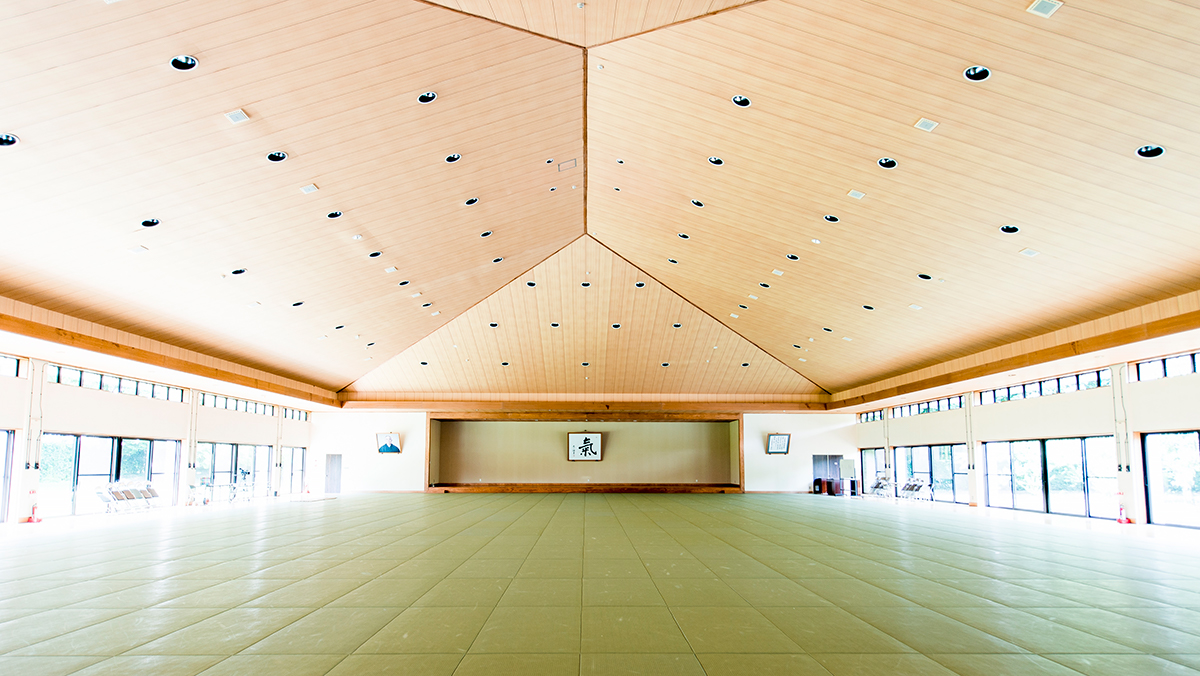A Short Instruction:
The purpose of this article is to practice and validate the Ki principle (Mind moves body) which is the foundation of Ki-Aikido in our daily life. Therefore, it has no meaning if you just read it without practicing it.
The fundamental method of mastering anything is practice. However, it is not enough just to practice, but it is also important to validate how one has changed as a result of the practice.
It is easy to lose what you have learned without practice. On the other hand, you will never lose what you have learned through practice and validation. Therefore, please read, practice, and validate the contents of my article for at least one month.
The Mind moves the Body
The most fundamental and important thing in learning Shin Shin Toitsu Aikido is the “Ki Principle” (The Mind moves the Body).
We all have the mind and the body. The body has color and shape. It is visible and touchable. On the other hand, the mind does not have color and shape. We do not understand well the other’s mind or even our own. Since long ago, it has been said, “the mind is not something that can be grasped by the senses”. However, it is not actually true. The state of the mind is reflected in the state of the body. Thus, through the state of the body, we are able to know the state of mind.
A few days ago, one member asked one of Uchideshi to hand over something to me. But the Uchideshi left the thing there and forgot to give it to me. Then I found it where it had been left behind. I called him immediately and warned him severely regarding this behavior. In response, he just kept apologizing by saying “I will not forget next time”, “I will not do the same again”. However, by simply apologizing many times, the Uchideshi does not truly improve, because he does not necessarily understand the principle “the Mind moves the Body”.
If his actual state of mind does not change, then it will, once again appear in his life as a mistake. In that same state of mind, he will repeat that same mistake again. It is vital to know the state of our mind. Therefore, I always instruct the students “to confront (see) their mind”, rather than simply accusing them of their mistake.
The following is the conversation between me and the Uchideshi (A):
I: “Why have you left the thing which was supposed to be handed over to me there?”
A: “I am sorry. I will be more careful from now on”.
I: “Your apology is not really what I want. I am asking why you have left the thing.”
A: “I thought I would place the thing there and come back to take it later, but unfortunately, I forgot it.”
I: “Why did you think it was all right that you would come back later?”
A: “Since I had other things to do, I made those other things my priority.”
I: “If you could not bring it to me yourself, then why couldn’t you ask somebody else to do so?”
A: “……. Probably I could have done that, however, this idea did not come to me at the time.”
I: “Then, why did that idea not come to you?”
As such, this exchange of conversation could have lasted forever. However, this Uchideshi was not saying this with any evil intent. He did not recognize that he was simply offering excuses.
The point is that he could not realize that the mistake he had made was a reflection of his state of mind. Unless he knows the state of his own mind and amends this state of mind, he will repeat the same mistake again and again. Unless he confronts (sees) his state of mind, he cannot become a good instructor. Therefore, I didn’t forgive him prior to making the cause of the mistake clear.
After the several exchanges in our conversation, his real feelings appeared as follows;
A: “…. In fact, I felt a bit of bother.”
I: “Why did you feel it was bothersome?”
A: “Probably I did not care and didn’t respect the person who asked me. I took my own business precedence over the person’s wishes.”
I: “Do you think it is OK for you to keep having that state of mind?”
A: “No, I would like to change the state of my mind, otherwise I will repeat the same mistakes again.”
Some people never change even after such a process as above. But still, I do not want to give up encouraging them to “confront (see) their mind”. Fortunately, this Uchideshi got the point and has never committed this same mistake since that time.
It can be considered that the execution of both the techniques of Shin Shin Toitsu Aikido and activities in our jobs in daily life, are the reflection of the state of our mind.
We can know the state of our mind by observing the state of our body. And then, after knowing the state of mind, we can amend the way of we use the mind. By continuing this processes, we will be able to improve.
The following is the practice and validation for this month.
[Point of practice]
・If there was a mistake in your job or daily life, see what the state of your mind was at the time.
[Point of validation]
・ After seeing the state of your mind, amend the way you use your mind.
・ Write down how you changed consequently.

